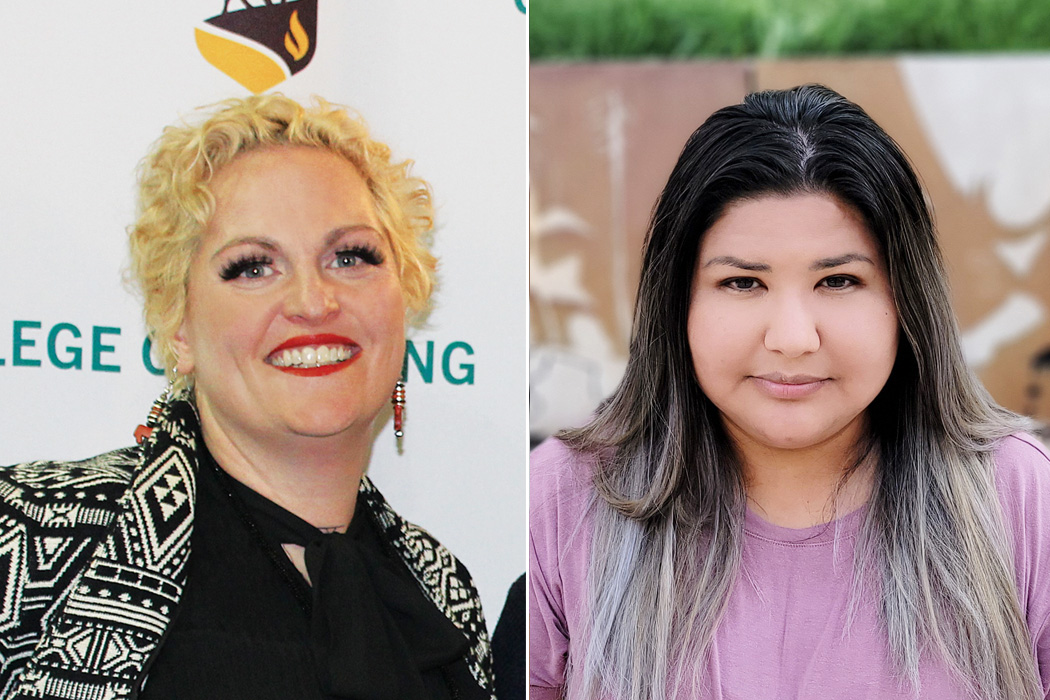
(L to R) Stephanie Van Haute and Corrine Clyne
Rady PhD students receive inaugural Indigenous fellowships
The Rady Faculty of Health Sciences has named the first recipients of its Indigenous Graduate Fellowship.
The fellowship, launched in November 2023, is designed to support Canadian Indigenous graduate students pursuing part-time (primarily) or full-time thesis-based master’s or PhD programs within the faculty. It provides annual funding of $9,500 for master’s programs and $12,000 for PhD studies.
“This fellowship provides meaningful support for Indigenous students and nurtures an environment for Indigenous perspectives at the Rady Faculty of Health Sciences. The inclusion of Indigenous knowledge and viewpoints in our graduate programs enriches our academic community and is an investment in the future of health care in Manitoba,” said Peter Nickerson, vice-provost (health sciences) and dean of the Max Rady College of Medicine and the Rady Faculty of Health Sciences.
Corrine Clyne is in the applied health sciences PhD program. Originally from Norway House Cree Nation, she graduated with a master’s degree in occupational therapy from UM in 2012. She has spent the last few years working as a pediatric occupational therapist serving First Nations communities through the Rehabilitation Centre for Children, based out of Winnipeg.
She also worked as a policy analyst with the Assembly of Manitoba Chiefs Secretariat supporting the province’s Jordan’s Principle initiative, which was developed to ensure that First Nations children receive the government services they need without barriers.
Clyne also works with Ongomiizwin – Health Services as an Indigenous cultural safety facilitator.
Her research will be focused on how sensory processing is viewed from a First Nations perspective and how that differs from a western perspective.
“Sensory processing is a term we use a lot in occupational therapy. It’s how we register inputs from our seven senses and how our brain organizes that information and then we have a response with our body. For example, if it’s too bright out you’ll grab for sunglasses or squint – you’re doing a reaction to get your body regulated,” she explains.
“I’d like to work with Elders mostly, or older adults, because they have the knowledge – and that is knowledge we can’t lose.”
Stephanie Van Haute is a Red River Métis scholar from Winnipeg. She received a master’s degree in nursing from UM in 2021 and entered the College of Nursing’s PhD program in Fall 2022.
Van Haute has been a practicing registered nurse for over 20 years. Until recently, she worked as director of patient services for the Indigenous Health program with the Winnipeg Regional Health Authority. Much of this work involved supporting culturally safe care initiatives throughout the health system.
The fellowship, along with the UM Indigenous Doctoral Program Fellowship and other funding, allows her to work on her PhD full time. Her research is focused on supporting Indigenous wellness in Churchill, Man., whose Indigenous residents make up over half of the population.
“My dissertation work is really to sit with Indigenous community members along with visiting clinicians that make up Churchill’s health system to start to dream or vision what would be required. I’m a ceremony person and I’m really interested in using ceremony and Indigenous ways of knowing to help guide these visions,” Van Haute said.
“Fellowships like these allow me to work closely with the community spending time in Churchill to understand the local community and to amplify their voices within the provincial health system.”






